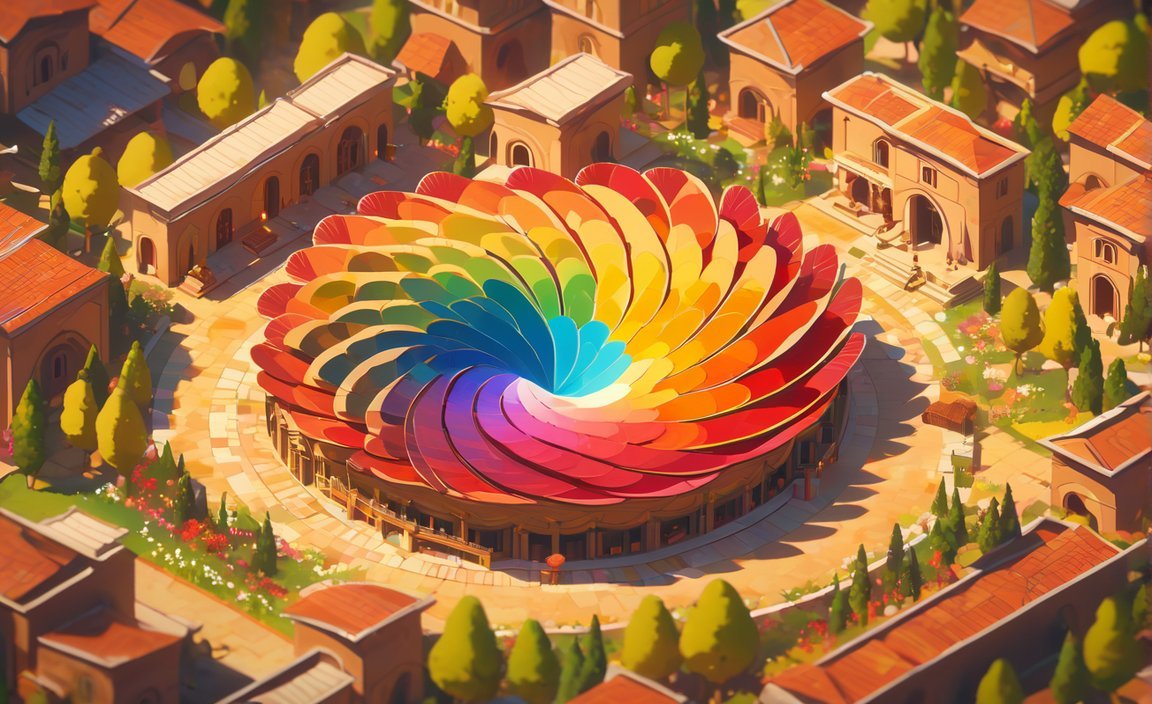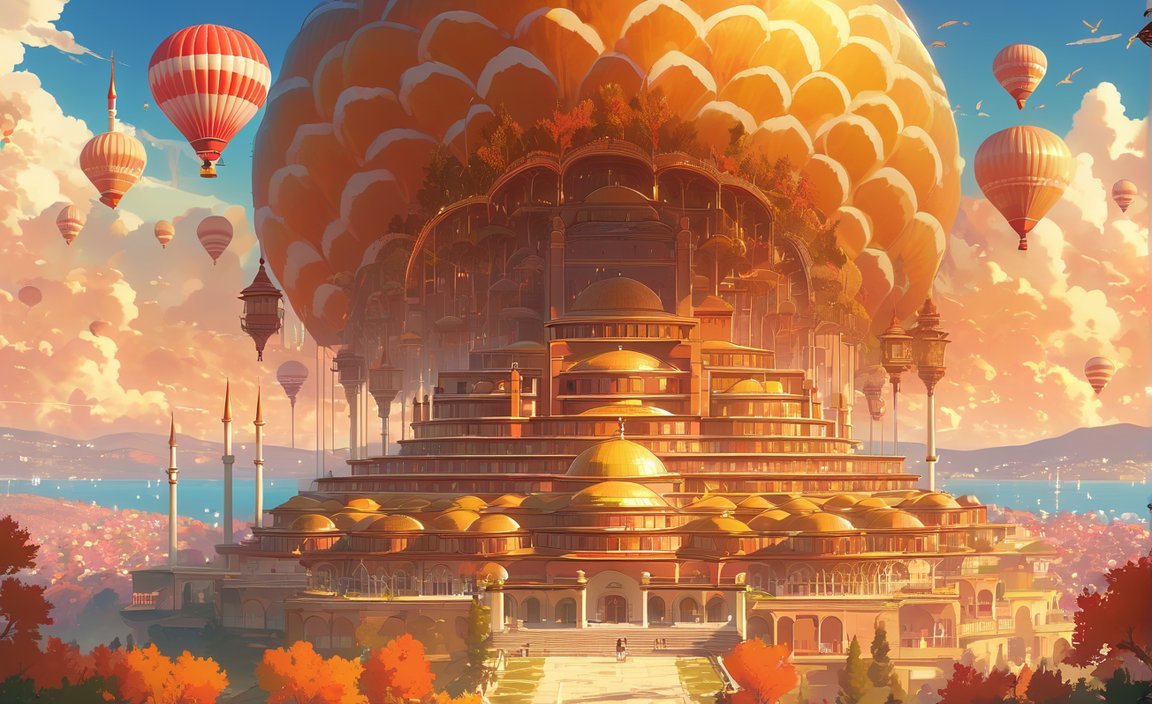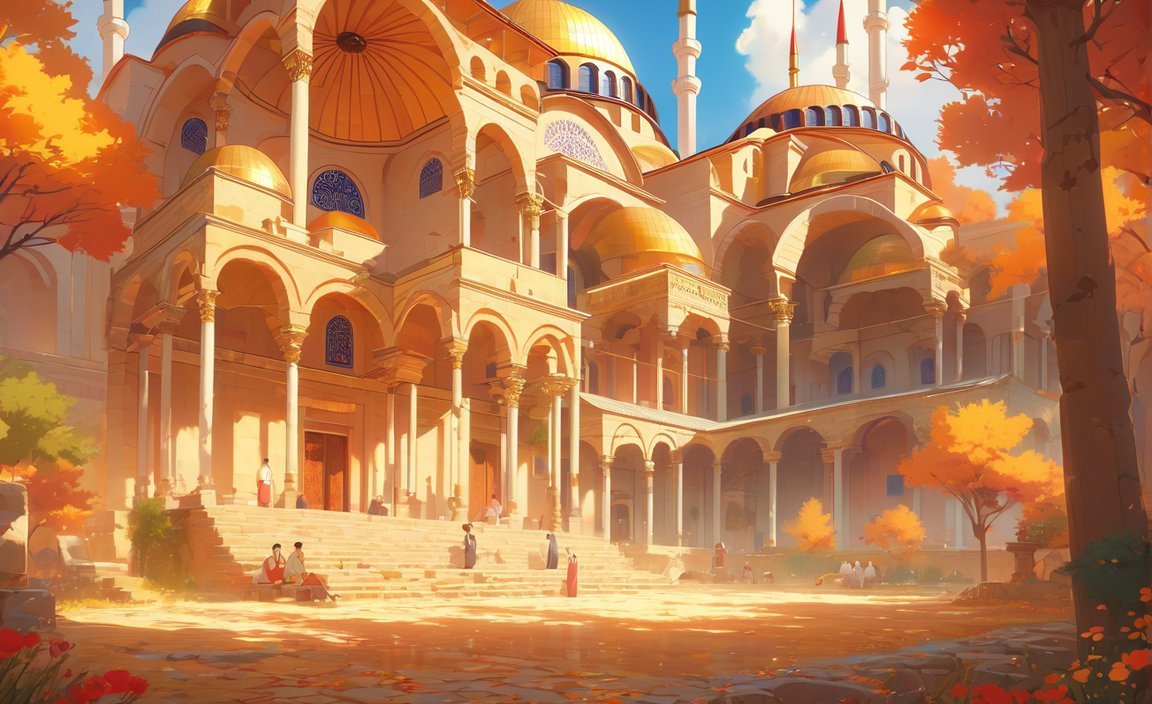Discover the fascinating facts about Turkey, a country steeped in history and brimming with cultural richness. In this article, we dive into the immersive insights that unveil Turkey’s captivating tapestry. From its ancient landmarks and mouthwatering cuisine to its vibrant traditions and diverse landscapes, we embark on a journey that will leave you informed and inspired to explore this enchanting destination. Join us as we unravel the secrets and uncover the hidden gems that make Turkey truly extraordinary.

Key Takeaways:
- Turkey is situated at the intersection of Europe and Asia, boasting a population of over 82 million.
- The official language spoken in Turkey is Turkish, and its largest city is Istanbul.
- Turkey is renowned for its rich history and diverse cultural heritage, governed by a secular system.
- The local currency used in Turkey is the Turkish lira.
- With its vast expanse, Turkey surpasses the size of Texas and is unique as a transcontinental country, with Istanbul straddling two continents.
- Syria, Iraq, Iran, Armenia, Azerbaijan, Georgia, Bulgaria, and Greece share borders with Turkey, totaling eight neighboring countries.
Sources:
1. National Geographic Kids
2. The Fact File
Facts about Turkey the country
Turkey, located at the crossroads of Europe and Asia, is a captivating country with a rich tapestry of history and culture. Let’s delve into some fascinating facts about this enchanting destination.
1. A Land of Diversity
With a population of over 82 million people, Turkey is a diverse country that boasts a unique blend of cultures, traditions, and languages. It is a melting pot where Europe meets Asia, creating a captivating fusion of influences.
2. Istanbul: Where Continents Collide
The stunning city of Istanbul holds the distinction of being the only city in the world that straddles two continents, Europe and Asia. This dynamic metropolis bridges the East and the West, offering a vibrant mix of traditions, flavors, and architectural wonders.
3. A Historical Tapestry
Turkey’s historical significance is rivaled by few countries in the world. From the legendary city of Troy to the colossal ruins of Ephesus, Turkey is home to countless ancient sites that unveil the tales of empires and civilizations long past. Exploring these archaeological wonders is like embarking on a journey through time.
4. A Country of Contrasts
As a transcontinental country, Turkey is larger than the state of Texas. Its vast landscapes offer a stunning contrast, from the pristine beaches along the Mediterranean and Aegean coasts to the rugged mountains of the Eastern Anatolia region. Nature enthusiasts and adventure seekers will find plenty to explore in this diverse country.
5. The Secular State
Turkey embraces a secular government, where religion and state are separate. This unique characteristic sets it apart from many other predominantly Muslim countries and contributes to Turkey’s diverse and inclusive society.
6. Turkish Delights
When it comes to cuisine, Turkey offers a tantalizing array of flavors and delicacies. From succulent kebabs to melt-in-your-mouth baklava, Turkish cuisine has something to delight every palate. Don’t forget to sip on a cup of traditional Turkish tea and let the rich flavors transport you to the heart of this gastronomic paradise.
7. Magnificent Landmarks
Turkey is home to a plethora of iconic landmarks that have captivated visitors for centuries. You can wander through the stunning Blue Mosque in Istanbul, marvel at the mystical rock formations of Cappadocia, or explore the ancient splendor of the UNESCO World Heritage Site, Pamukkale. Each landmark tells a unique story and offers a glimpse into Turkey’s rich heritage.
8. A Country of Warm Hospitality
Turkish people are renowned for their warmth and hospitality, making visitors feel welcome and cherished. From the bustling markets of Istanbul to the charming coastal towns, you’ll encounter friendly locals who are eager to share their culture and stories.
In conclusion, Turkey is a country that embodies a vibrant blend of history, culture, breathtaking landscapes, and warm hospitality. Exploring its fascinating facts and experiencing its treasures firsthand is an immersive journey that will leave you with lasting memories. So, why not embark on an adventure to this diverse destination and discover the wonders that make Turkey truly unique?
Check out these fascinating Serbia fun facts to learn more about this unique country! Don’t miss the opportunity to discover interesting insights and surprising information about Serbia’s rich history, culture, and traditions. Click on the link for a thrilling journey through Serbia’s fun facts: Serbia fun facts.
Have you ever wondered about the captivating and lesser-known aspects of Guyana? Unveil the hidden treasures of this beautiful country with Guyana fun facts! From amazing natural landscapes to diverse wildlife, there’s so much to explore. Click here to embark on a thrilling adventure through Guyana’s fun facts: Guyana fun facts.
Uncover the captivating fun facts about Guyana and dive into its intriguing culture, traditions, and natural wonders. From breathtaking waterfalls to vibrant festivals, there’s no shortage of amazing experiences. Click on the link to delve into the fascinating world of Guyana: Fun facts about Guyana.
Have you ever wanted to know more about Sweden’s intriguing and unique attributes? Discover fascinating insights into Swedish culture, history, and landscapes with fun facts of Sweden. From stunning Northern Lights to delicious Swedish cuisine, there’s a world of wonders waiting for you. Click here to explore the remarkable fun facts of Sweden: Fun facts of Sweden.
Experience the magic of Christmas in Italy and be enchanted by its vibrant traditions and celebrations. Unveil interesting facts about the Italian Christmas, from festive feasts to spectacular decorations. Click on the link to immerse yourself in the enchanting world of Christmas in Italy: Fun facts about Christmas in Italy.
Cultural Diversity and Influences in Turkey
Turkey’s cultural diversity and influences are a testament to its rich historical tapestry and geographical position. Situated at the crossroads of East and West, Turkey has been shaped by a blend of civilizations, traditions, and practices. In this article, we will delve into the fascinating cultural diversity and influences that make Turkey a unique and captivating destination.
The Confluence of East and West
Turkey’s location between Asia and Europe has exposed its society to diverse influences from both the Eastern and Western worlds. Throughout its history, Turkey has been influenced by empires such as the Ottoman Empire, the Byzantine Empire, and ancient Anatolian civilizations. This confluence of cultures has resulted in a dynamic blend of traditional and modern conventions, as well as religious and secular practices.
A Tapestry of Influences
Turkey’s cultural diversity is further enriched by influences from various regions. Geographically, Turkey is influenced by the Eastern Mediterranean, Eastern Europe, Central Asia, and the Caucasus. These influences have shaped the country’s architecture, cuisine, language, and traditions.
An Ever-Changing Landscape
The cultural influences in Turkey can be seen in its diverse landscapes. From pristine beaches along the Mediterranean and Aegean coasts to rugged mountains in the east, Turkey offers a vibrant tapestry of natural beauty that reflects its cultural diversity. Each region is distinct in its traditions, customs, and even cuisine, allowing visitors to experience a wide array of cultural influences within one country.
A Blend of Traditions and Modernity
Turkey seamlessly blends its rich cultural heritage with modernity. While the country embraces Western lifestyles and global trends, it also preserves its traditional values and customs. Visitors to Turkey can witness this harmony as they explore historic landmarks, bazaars, and traditional festivals while also experiencing its bustling cities and thriving contemporary art scenes.
Key Takeaways:
- Turkey’s cultural diversity is shaped by influences from the Ottoman Empire, the Byzantine Empire, and ancient Anatolian civilizations.
- The country reflects a unique blend of traditions and modern conventions, as well as a mix of religious and secular practices.
- Geographically, Turkey draws influences from the Eastern Mediterranean, Eastern Europe, Central Asia, and the Caucasus.
- The country’s diverse landscapes, from pristine beaches to rugged mountains, mirror its cultural richness.
- Turkey seamlessly blends its rich cultural heritage with modernity, allowing visitors to experience a harmonious fusion of the old and the new.
Sources:
– Cultural Atlas. Turkish Culture – Core Concepts
– Hindustan Times. Turkey and its culture: All about blend of traditions and modernity
Unique Landmarks and Attractions in Turkey
Turkey is a country that is brimming with unique landmarks and attractions, offering visitors an enriching experience that showcases the country’s rich cultural heritage and natural beauty. From architectural wonders to breathtaking landscapes, there is no shortage of must-visit places in Turkey. Let’s dive into some of the most fascinating and captivating attractions that make Turkey a truly enchanting destination.
Hagia Sophia: The Fusion of Byzantine and Ottoman Influences
Located in Istanbul, Hagia Sophia is a true architectural masterpiece that is often regarded as the eighth wonder of the world. This iconic landmark has a storied history, having served as both a church and mosque throughout the centuries. Its design beautifully fuses elements of Byzantine and Ottoman architecture, making it a captivating sight for visitors. The grandeur and intricate details of Hagia Sophia leave visitors in awe as they explore its rich history and turbulent past.
Blue Mosque: A Marvel of Ottoman Architecture
Another stunning landmark in Istanbul is the Blue Mosque, also known as the Sultan Ahmed Mosque. This mosque is an epitome of Ottoman architecture and Islamic art, boasting intricate tilework, majestic domes, and towering minarets. It is truly a sight to behold, especially during prayer times when the soft blue backlighting creates a serene ambiance. The Blue Mosque stands as a testament to the architectural brilliance and spiritual devotion of the Ottoman Empire.
Cappadocia: A Fairytale-Like World of Chimneys and Underground Cities
Nestled in central Anatolia, Cappadocia is a region that seems straight out of a fairytale. Its surreal landscapes, known as “fairy chimneys,” are formed by unique rock formations shaped by centuries of volcanic activity. These chimneys, coupled with rock-cut churches and underground cities, create a mesmerizing atmosphere that transports visitors to another world. Cappadocia is also famous for its hot air balloon rides, offering an unparalleled perspective of its ethereal beauty from above.
Pamukkale: Nature’s Own White Paradise
Pamukkale, meaning “cotton castle” in Turkish, is a natural wonder that looks like a dreamy white paradise. It is characterized by its mineral-rich terraces and terraced pools, which have been formed over thousands of years by the flow of calcium-rich waters. The result is a stunning sight that resembles cascading terraces, offering a unique and relaxing experience. Pamukkale is not only a visual spectacle but also a designated UNESCO World Heritage Site, highlighting its immense natural beauty and historical significance.
Ephesus: Discovering Ancient Roman Splendor
For history enthusiasts, Ephesus is a must-visit destination. It is the most extensive and well-preserved ancient city in Turkey, offering a glimpse of the grandeur and splendor of the Roman Empire. Visitors can explore the ruins of this ancient city, marvel at the well-preserved structures like the Library of Celsus and the Temple of Artemis, and imagine what life was like during the height of the Roman civilization. Ephesus stands as a testament to the rich history of the region and its cultural significance.
Galata Tower: A Medieval Gem with Panoramic Views
Situated in Istanbul, the Galata Tower is a medieval stone tower that provides panoramic views of the cityscape. It offers a breathtaking perspective of Istanbul’s iconic landmarks, including the Bosphorus Strait and the historic district. Visitors can immerse themselves in the rich history of the tower as they ascend to its observation deck and capture stunning photographs of the city below. The Galata Tower serves as a reminder of the city’s vibrant past and its enduring charm.
Grand Bazaar: A Shopper’s Paradise
No visit to Turkey would be complete without exploring the Grand Bazaar in Istanbul. This historic marketplace is one of the oldest and largest covered markets in the world, offering a vibrant and bustling atmosphere. Its labyrinthine corridors are filled with shops selling traditional crafts, textiles, spices, and more. The Grand Bazaar is a treasure trove for shoppers and a unique cultural experience, allowing visitors to immerse themselves in Turkey’s rich heritage and vibrant market culture.
These are just a few of the captivating landmarks and attractions that make Turkey an irresistible destination for travelers seeking unique cultural experiences and breathtaking beauty. Whether you are drawn to its historical sites, architectural wonders, or natural landscapes, Turkey offers a diverse range of experiences that will leave you in awe.
Key Takeaways:
– Turkey boasts a rich cultural heritage and stunning natural landscapes.
– Hagia Sophia and the Blue Mosque showcase the fusion of Byzantine and Ottoman influences.
– Cappadocia offers fairy chimneys, rock-cut churches, and underground cities.
– Pamukkale dazzles with its white terraces and mineral-rich pools.
– Ephesus provides a glimpse into the ancient Roman civilization.
– Galata Tower offers panoramic views of Istanbul’s cityscape.
– The Grand Bazaar is a shopper’s paradise, brimming with traditional crafts and textiles.
Sources:
– Thrillophilia – 55 Places to Visit in Turkey
– Global Brands Magazine – 10 Top Tourist Attractions in Turkey
Delicious Turkish Cuisine and Culinary Traditions
Turkey’s culinary landscape is a tapestry woven with influences from Mediterranean, Balkan, Middle Eastern, Central Asian, and Eastern European cuisines. As a travel writer delving into the world of Turkish cuisine, I can confidently say that it is a fascinating realm of flavors, traditions, and culinary delights.
Turkish Breakfast: A Rich Variety of Delights
Start your day the Turkish way with a breakfast spread that will leave your taste buds dancing with delight. Turkish breakfast, known as “kahvaltı,” is a lavish affair that showcases a diverse array of dishes. From creamy cheese and butter to plump olives, eggs, and muhammara, each bite offers a burst of flavor.
Indulge in a plate of menemen, a delicious mix of scrambled eggs, tomatoes, peppers, and spices, or try çılbır, a poached egg dish with yogurt and melted butter. The combination of ingredients and flavors in these traditional breakfast dishes will kickstart your day with a burst of energy.
Homestyle Cooking: A Tradition That Endures
Turkish cuisine has deep roots in Ottoman cuisine, a fusion and refinement of various culinary traditions. One standout characteristic of Turkish food is the preference for homemade dishes. Turkish people take pride in creating meals from scratch, using fresh and local ingredients.
A classic Turkish meal often begins with a comforting bowl of soup, followed by a main dish made with vegetables, meat, or legumes. This emphasis on wholesome and hearty cooking is a testament to the Turkish people’s love for traditional flavors and nourishing meals.
The Rich and Extensive World of Turkish Cuisine
While fast-food chains have gained popularity, Turkish cuisine remains firmly rooted in its rich and extensive dishes. Traditional ingredients like lamb, chicken, beef, fish, rice, eggplants, peppers, lentils, beans, zucchinis, chickpeas, and tomatoes form the backbone of many mouthwatering Turkish specialties.
Nuts, especially pistachios, chestnuts, almonds, hazelnuts, and walnuts, are extensively used in Turkish desserts, adding a delightful crunch and hint of sweetness. Olive oil, butter, margarine, beyaz peynir (white cheese), and yogurt are common ingredients that add depth and richness to Turkish dishes.
A Blend of Tradition and Modernity
Turkey’s culinary scene is a harmonious blend of tradition and modernity. While traditional Turkish cuisine takes center stage, international flavors and influences from neighboring countries can also be found. This fusion creates a diverse and vibrant culinary tapestry that satisfies both traditionalists and adventurous food enthusiasts.
Despite the majority of Turks professing the Islamic religion, alcoholic beverages like rakı are readily available in Turkey. This duality of traditional and modern practices characterizes Turkey’s open-mindedness and willingness to blend different cultural strands.
Key Takeaways:
- Turkish cuisine is a fusion of Mediterranean, Balkan, Middle Eastern, Central Asian, and Eastern European culinary traditions.
- Turkish breakfast, or “kahvaltı,” offers a rich variety of dishes, including cheese, olives, eggs, and traditional breakfast specialties like menemen and çılbır.
- Homemade food is preferred in Turkish cuisine, showcasing a love for traditional flavors and wholesome cooking.
- Turkish cuisine relies on a wide range of ingredients, including lamb, chicken, beef, rice, vegetables, legumes, and nuts.
- Turkey’s culinary scene blends tradition and modernity, embracing international influences while maintaining its deep-rooted culinary heritage.
Sources:
– Turkish cuisine – Wikipedia
– Turkish breakfast – Wikipedia

FAQ
Q1: What is the population of Turkey?
A1: Turkey has a population of over 82 million people.
Q2: What is the official language of Turkey?
A2: The official language of Turkey is Turkish.
Q3: What are some famous landmarks in Turkey?
A3: Some famous landmarks in Turkey include Hagia Sophia, Blue Mosque, Cappadocia, Pamukkale, Ephesus, Galata Tower, and the Grand Bazaar.
Q4: How many bordering countries does Turkey have?
A4: Turkey has eight bordering countries: Syria, Iraq, Iran, Armenia, Azerbaijan, Georgia, Bulgaria, and Greece.
Q5: What is the currency used in Turkey?
A5: The currency used in Turkey is the Turkish lira.
- Sept 31 Myth: Unveiling Calendar Secrets - March 18, 2025
- How Long & Till December 18, 2025: Accurate Countdown Guide - March 18, 2025
- Discover Japanese Artists: A Complete History - March 18, 2025
















